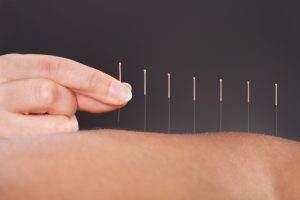 It is estimated that 25.8 million people in the United States have diabetes, a disease in which the body does not produce or properly use insulin. Insulin is a hormone that is needed to convert sugar, starches and other food into energy needed for daily life. According to the Centers for Disease Control, 1 in 4 people remain unaware that they live with diabetes.
It is estimated that 25.8 million people in the United States have diabetes, a disease in which the body does not produce or properly use insulin. Insulin is a hormone that is needed to convert sugar, starches and other food into energy needed for daily life. According to the Centers for Disease Control, 1 in 4 people remain unaware that they live with diabetes.
It is important to get a diagnosis as soon as you suspect that diabetes may be a problem for you, as untreated diabetes affects the whole body and can lead to other medical problems, including heart disease, kidney failure, blindness, peripheral neuropathy, digestive disorders and periodontal disease. In order to manage diabetes, it is essential to make healthy lifestyle choices in diet, exercise and other areas. Another important factor when treating diabetes is creating a support team of health care professionals, including a licensed acupuncturist.
Diabetes According to Oriental Medicine
Acupuncture and Oriental medicine have been used to treat diabetes for over 2000 years. According to Oriental medicine, diabetes is caused by an imbalance of the cyclical flow of Qi within the meridians and organ systems. This particular imbalance produces heat that depletes the body’s fluids and Qi, causing symptoms such as extreme fatigue, lethargy, unexplained weight loss, excessive thirst, excessive urination, excessive eating, slow healing of cuts and wounds, infections, irritability, tingling or numbness in the extremities and blurry vision.
Offering a holistic approach, acupuncture and Oriental medicine provide a treatment plan specifically tailored to each individual to relieve symptoms associated with diabetes. Acupuncture and Oriental medicine can assist the body return to a healthy functioning state. In addition to acupuncture, a variety of techniques may be used during treatment, including bodywork, lifestyle changes, dietary recommendations, exercises or herbal medicine.
Often the first sign of adult onset diabetes, or Type 2 diabetes, is the exacerbation of a pre-existing skin condition, or the appearance of a new one. Damage to the nerves and blood vessels impairs the body’s ability to fight infection. When diabetes goes unchecked, not only do the chances of incurring fungal and bacterial infections increase, but the severity increases as well.
There are a variety of skin conditions that specifically afflict diabetes patients. Here are a few:
— Acanthosis nigricans
raised and brownish patches
— Diabetic dermopathy
small round bumps on the shins
— Necrobiosis lipoidica
diabeticorum – granular
skin lesions
— Eruptive xanthomatosis
small, roundish pink papules
— Disseminated granuloma
annulare – small bumpy lesions
According acupuncture and Oriental medicine, the skin and large intestine have a unique relationship. The health of the large intestine can be observed by the condition of the skin. One purpose of this internal organ is to absorb fluids and excrete wastes. Sometimes unusable or toxic material gets stuck and starts to putrefy, instead of completely exiting the body via the colon.
Although heat and toxins are normally released through the sweat glands, an overload of waste products can undermine this function and tell-tale symptoms of abnormal skin conditions may manifest. Depending on the type of infection or condition, the skin may react by producing heat, swelling, redness, itchiness, dry patches, or pus-filled sores.
For the patient with itchy, red, and painful sores on top of the foot, treatments may include the use ofQuchi, a versatile acupuncture point used to clear heat and assist in healing sores or reducing fever.
To reinforce acupuncture treatment results, lifestyle and dietary changes may be recommended. Foods that can support large intestine and subsequently skin health include yams, pumpkins, string beans, celery, and turnips. Fruits and vegetables high in fiber will help keep food moving in the digestive tract. It’s when food remains undigested in the large intestine that pathogens and toxins may accumulate.
Drinking water periodically throughout the day will help the intestines stay lubricated. Warm tea can be especially soothing after eating a meal. Diabetics may want to consider eating smaller meals at more frequent intervals. Avoiding fatty, greasy or fried foods can prevent the large intestine from becoming overburdened.
Call today to learn more about how acupuncture and Oriental medicine can be used to manage diabetes and improve your overall health and well being!
